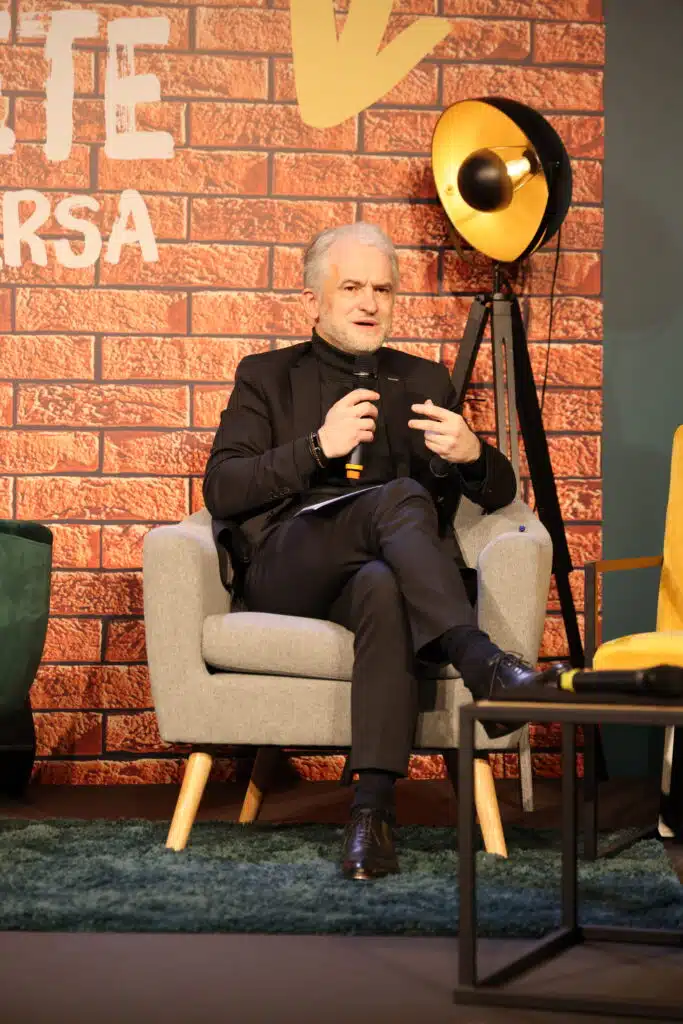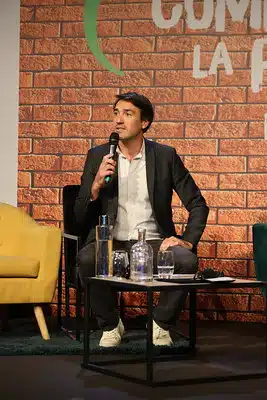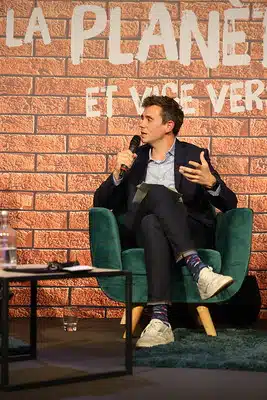The multiples crisis that our world has experienced over the last two decades show us how fragile the current financial system is. In this conversation animated by Leor Rotchild, Bertrand Badré realistically describes the struggle and the steps toward a global change in the international financial system.
Bertrand Badré is the CEO of the sustainable investment fund Blue like an Orange. Better known as the former financial and general director of the World Bank, he also worked as the financial director of the Caisse d’Epargne and the Société Générale. Bertrand Badré recently published the book Money Hoonie: Can Finance save the world? prefaced by Emmanuel Macron and a short essay, From Billions to Trillions in which he highlights the lack of investments in the ecological transition.
The world current financial system
Enriched by his professional experience in the world of the international financial system, Bertrand Badré points out the difficulty to change the main economic paradigm toward a more sustainable development. The system is based upon neoliberal ideas from the 1970s. As such, Milton Friedman argued, “the social responsibility of business is to increase its profit”. This vision of the economic order remains in the international treaty such as in the Washington Consensus. Since the world has not changed its model yet, international environmental treaties such as the Paris Agreements rely exclusively on peer pressure and the goodwill of states to change the current system.
Environment is still not considered as a serious issue by the main powers: the last G20 on environment only raised 13 billion dollars in investment for ecological transition in a 100 trillion-dollar economy.
Finance as the motor of change
In this transition toward a brighter future, finance has a key role to play. To quote Alexandre Mars, “credit card is the election bill”. As the 18th century was pushed by direct return, the 19th century driven by risk and return, the 20th century needs to be motivated by a combination of risk, return and impact. Profit should just be a mean to achieve an end. So, every financial decision needs to have a social or environmental positive impact on our society. But how can an investor measure the sustainability of a project?
To measure the sustainability of a candidate, investors need to check if the investment are transparent. If so, to verify the balance between the social, the environment and the economy. Typically, Blue like an Orange had invested in a sustainable project in Colombia as such.
The role of private actors on ecological transition
Not to be too pessimistic, several responsible actions are taken by entrepreneurs and consumers to change the system, as illustrated by the World Forum. For Bertrand Badré, it is a positive but not sufficient display. In order the transition to be achieved, people need to start by changing themselves. They should stop hiding behind excuses and look at their own change upfront before asking the society to do it for them. The change will come from pressure from the private to the public sphere and from pressure from the national to the international market world order.
The current Covid-19 crisis and the upcoming economic crisis might be the best chance we have to modify our international economic and financial order. Change must be triggered by both people and public sectors. Finance has to be a key actor for transition, starting now by investing trillions of dollars in ecological transition. Only then, will we be able to save the planet!
Matteo Darnet



